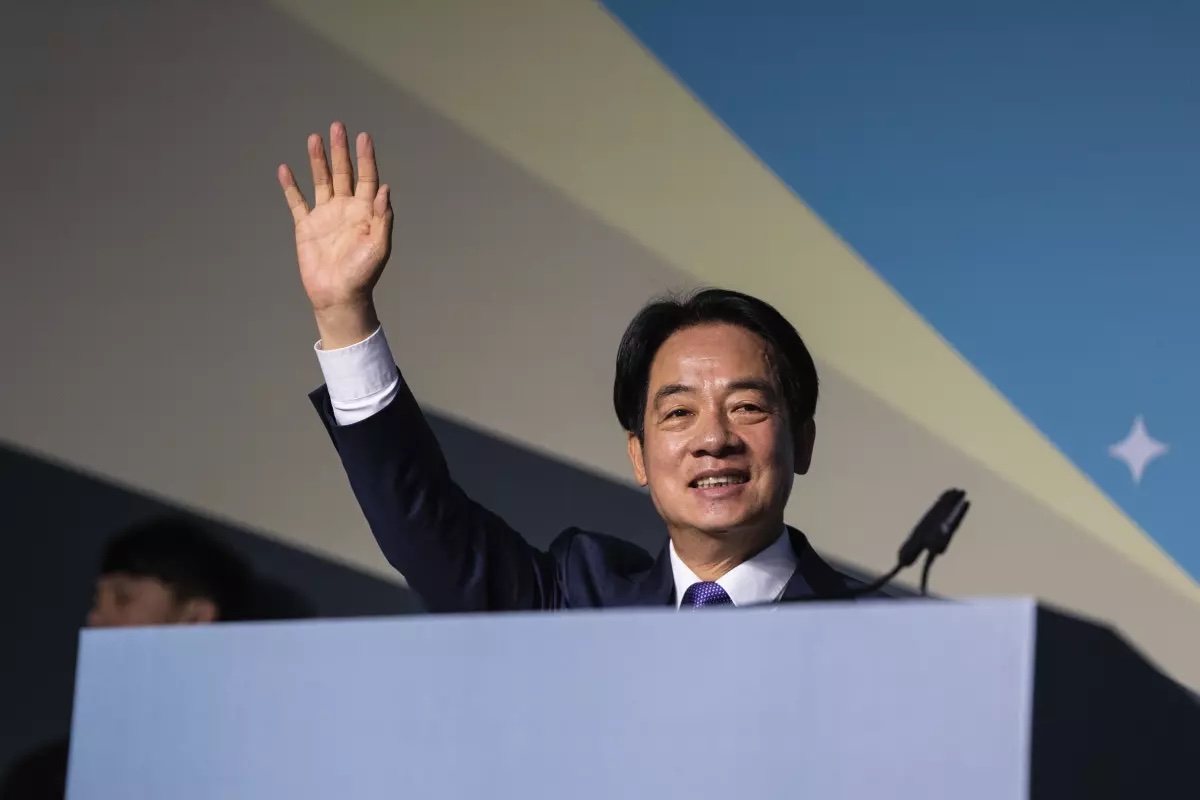Tensions between the United States, China and Taiwan have risen dramatically as the results from Taiwan’s most recent presidential election have caused the two superpowers to evaluate their relationship with one another once again.
On Jan. 13, the country of Taiwan counted votes for the election of their new president. Candidate and current Vice President Lai Ching-te won the presidential election, much to China’s behest. Lai Ching-te is known for his strong stances against the Chinese Communist Party (CCP) and the communist government’s oppressive stances and actions.
The CCP has a track record of opposing candidates from Taiwan’s Democratic Progressive Party (DPP) with intimidation tactics which usually yield no results.
Fear-mongering seems to be the CCP’s main show of force towards Taiwanese politics — in lieu of the results, the Chinese government has stated it will respond with increased military and political pressure against the island nation.
“The Chinese government had previously warned against voting for Lai, saying his election would ‘trigger cross-Strait confrontation and conflict,’ according to Axios.
Lai Ching-te and the Democratic Progressive Party are committed to maintaining the “status quo,” an agreement where Taiwan governs itself but does not declare independence.
“The victory of Lai Ching-te in Saturday’s election was a setback for China’s efforts to bring Taiwan under its control. His Democratic Progressive Party advocates maintaining the status quo, in which Taiwan governs itself but refrains from declaring formal independence — a move that could trigger a Chinese military response.
“China, meanwhile, calls for what it terms a ‘peaceful reunification,’ but that seems increasingly unrealistic as most Taiwanese have come to oppose becoming part of China,” according to the Associated Press.
Taiwanese independence has placed China and the United States in an ideological war since 1979, when the U.S. officially recognized Beijing as China’s capital city instead of Taipei.
However, Lai Ching-te’s election has launched the countries into another phase of ideological warfare with how the U.S. State Department has reacted to the democratic win for Taiwan.
“U.S. Secretary of State Antony Blinken congratulated Lai on his victory, and saying Washington looks forward to working with all of Taiwan’s leaders ‘to advance our shared interests and values,’” according to the Associated Press.
In typical communist fashion, the CCP quickly issued a response to Blinken, raking the U.S. for supporting the values of freedom, democracy and liberty that Taiwan strives for.
“China’s Foreign Ministry said the U.S. statement ‘sends a gravely wrong signal to the “Taiwan independence” separatist forces’ and goes against a U.S. commitment to maintaining only unofficial ties with Taiwan,” according to the Associated Press.
Additionally, many members of the U.S. Congress congratulated Lai Ching-te and Taiwan’s commitment to democracy in the face of Chinese oppression:
“Indo-Pacific Subcommittee Chairwoman Young Kim, R-Calif., and Ranking Member Ami Bera, R-Calif., along with Foreign Affairs Committee Chairman Mike McCaul, R-Texas, and Ranking Member Gregory Meeks, R-N.Y., issued congratulations to Lai and praised Taiwan for ‘another milestone.’
“‘We condemn Beijing’s attempts to influence the elections through disinformation and military pressure and applaud the people of Taiwan for upholding democratic ideals… We look forward to working with President-elect Lai and Vice President-elect Hsiao to enhance the U.S.-Taiwan economic, cultural, and defense relationship,’” according to Fox News.
In response, President Biden in a recent press conference stated that the United States does not formally support independence for Taiwan.
“World leaders congratulated Taiwan’s ruling Democratic Progressive Party (DPP) for a historic third presidential term even as President Biden warned that the U.S. will not endorse independence for the island.
“‘We do not support independence,’ Biden told reporters when asked for comment on DPP candidate William Lai’s victory over the rival Koumintang (KMT) party following Saturday’s election,” according to Fox News.
While the U.S. is not formally in support of Taiwanese independence, the election and the principles Taiwan wishes to maintain are very much in line with the principles of the U.S.
No doubt, the election has pushed the CCP and the Chinese government closer to facing the reality of Taiwanese freedom, which the United States, given the right variables, could eventually start to support.
For now, though, U.S.-China relations teeter, as the world’s two superpowers wage war with words, threats and ideology.
“Taiwan’s Foreign Ministry, in its response, called on China ‘to respect the election results, face reality and give up its oppression against Taiwan,’” according to the Associated Press.











Be First to Comment